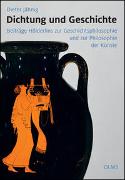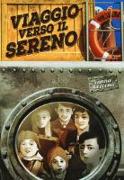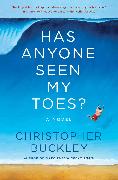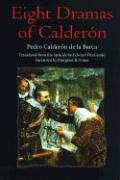- Start
- Dichtung und Geschichte
Dichtung und Geschichte
Angebote / Angebote:
Der Philosoph Dieter Jähnig (1926-2016) zählte zu den renommiertesten Vertretern seines Faches und hat sich seit seiner Promotion bei Friedrich Beißner zeitlebens mit dem Werk Friedrich Hölderlins beschäftigt. Seine berühmte und außerordentlich einflussreiche Vorlesung aus den achtziger Jahren zur philosophischen Tragweite dieser Dichtung wird nun erstmals in Buchform einer interessierten Öffentlichkeit zugänglich gemacht. Jähnig selbst hat bis kurz vor seinem Tod an dieser Publikation gearbeitet und sie, wo es nötig war, aktualisiert.Seine Vorlesung ist von der Überzeugung getragen, dass Hölderlins Dichtung gerade als Dichtung die Philosophen interessieren muss und ihr eigener Anspruch verfehlt wird, wenn sie nur als Gegenstand der Ästhetik Thema wird. Was dann übersehen wird, ist der ausdrückliche Bezug dieser Dichtung zur Geschichte. Hölderlin sagte selbst, dass die Dichtung, die er nach dem Abbruch an dem Empedokles-Drama begonnen hat, "unmittelbar das Vaterland angehn soll oder die Zeit". Dreh- und Angelpunkt dieser Wendung zur späten Lyrik ist ein neuartiges, durch die Sophokles-Übersetzungen eröffnetes Verständnis von Sprache. Die Sprache des Gedichts soll in einem "Wechsel der Töne" das innere Gefüge des geschichtlichen Handelns präsent machen: Geschichte ist nicht der chronologische Ablauf innerhalb des Rahmens von Vergangenheit und Zukunft, sondern der ständige Umschlag dieses ineinandergreifenden Gefüges, das Hölderlin das "Dreifach-leben" nennt. Dieter Jähnig zeigt, dass diese triadische Konstitution auch anderen Kunstwerken eigentümlich ist und den Anspruch rechtfertigt, Kunst als eine "Sprache" der Geschichte ernst zu nehmen.****************The philosopher Dieter Jähnig (1926-2016) was one of the most renowned representatives of his field of study and, after gaining his doctorate under Friedrich Beißner, engaged throughout his life with the work of Friedrich Hölderlin. His famous and extremely influential lecture from the 1980s on the philosophical importance of Hölderlin's poetry is now available for the first time in book form to an wider public. Jähnig himself worked on the publication until shortly before his death, updating it where necessary.The lecture is based on his conviction that Hölderlin's poetry must interest philosophers precisely as poetry, and that we ignore its true aspirations if we consider it merely as an aesthetic subject. What we then overlook is the express relationship of this poetry with history. Hölderlin himself said that the poetry he began to write after breaking off from work on his Empedocles drama "should relate directly to the fatherland or to the age." The centre and fulcrum of this turn in his later poetry is a new understanding of language, revealed to Hölderlin by his translation of Sophocles. The language of the poem should make the inner structures of the historical action present through a "changing of tones": history is not a chronological sequence within the framework of past and present but the constant alternation of these interlocking structures, which Hölderlin called the "triple life". Dieter Jähnig demonstrates that this triadic construction is also typical of other artworks and justifies the claim that art can be taken seriously as a "language" of history.
Lieferbar in ca. 5-10 Arbeitstagen




